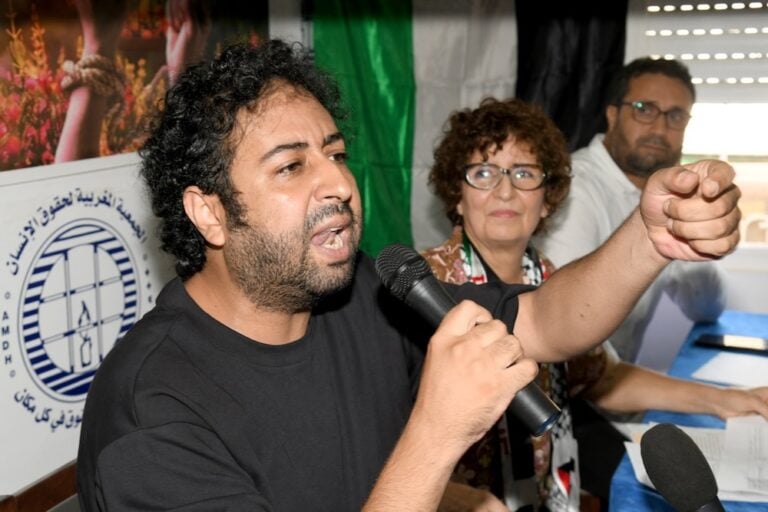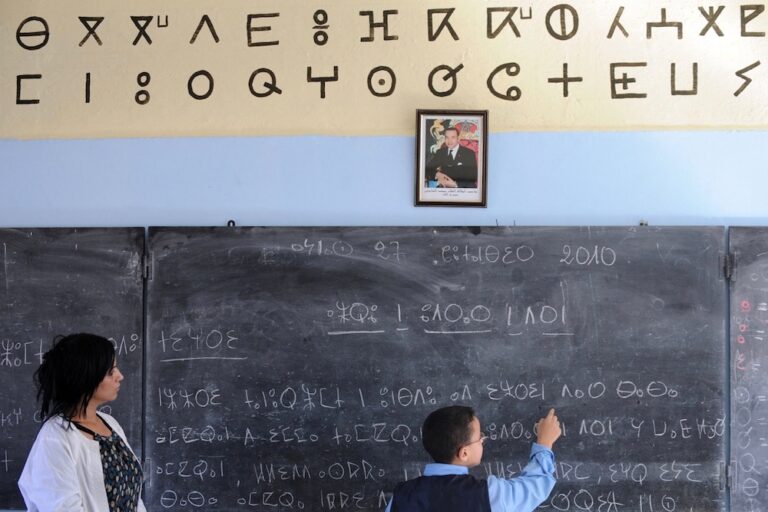(RSF/IFEX) – On 12 July 2007 Reporters Without Borders wrote to Prime Minister Driss Jettou voicing concern that a proposed overhaul of the press law currently being discussed by the government does not decriminalize press offences. The organisation called for significant changes in the current draft, which appears not to be the final version that […]
(RSF/IFEX) – On 12 July 2007 Reporters Without Borders wrote to Prime Minister Driss Jettou voicing concern that a proposed overhaul of the press law currently being discussed by the government does not decriminalize press offences. The organisation called for significant changes in the current draft, which appears not to be the final version that will be submitted to parliament.
“Your government is portraying the proposed new press law as an ‘important and historic’ advance in the reinforcement of free speech and press freedom in Morocco,” the letter said. “We are aware of all the work that has been put into its drafting, which has included bringing journalists into the discussions. We are also aware of your personal commitment to the proposed new law. Nonetheless, the draft we have right now, if adopted, would not be able to provide the necessary guarantees for the protection of journalists in Morocco.
“The most disturbing aspect of the draft is the decision to retain articles providing for prison sentences for press offences. Most of the legal provisions used to convict journalists in recent years have been kept. Among the most common offences one finds ‘insulting the king’ and ‘insulting the sacredness of institutions.’ They are punishable by one to five years in prison. These provisions are particularly restrictive since, as well as imprisonment, they offer judges the possibility of suspending a publication or closing it down for good.
“Even more serious, in our view, is the fact that the elimination of a significant number of articles in the existing law that provide for prison sentences – something which your government has made much of in its press campaign – is invalidated by article 100 (chapter V, paragraph 5), which reintroduces prison sentences in all cases for repeat offenders. We reject this provision all the more firmly as it would encourage journalists with one conviction to censor themselves for fear of being imprisoned on a subsequent conviction.
“Furthermore, many provisions are drafted so vaguely they can be interpreted in many different ways. And certain prohibitions are too general and too automatic. This is the case with article 85, which almost systematically bans coverage of anything involving personal privacy. We are also worried by the lack of real guarantees for the protection of the confidentiality of journalists’ sources. Article 13 (chapter III, section 1) is particularly problematic because it eliminates this guarantee in situations where it is most useful, namely before a court.
“Finally, we are worried about the some of the prerogatives of the future National Press Council (CNP) and the way its members are to be chosen. This council is to have very significant disciplinary powers and, as things stand, it could turn into a new tool for censoring journalists. It would, for example, be empowered to strip someone of the right to work as a journalist. This prerogative could have very dangerous consequences and could make journalists even more vulnerable than they are today.”
In all, Reporters Without Borders has established that at least 27 articles in the proposed new press law violate international standards, especially as regards decriminalization of press offences.
Reporters Without Borders called for the withdrawal of the press law currently in force immediately after its adoption in 2002. It is a very harsh law despite a number of positive aspects (it reduced the prison sentences and fines for press offences, it reduced the red tape involved in launching a new newspaper, and it forced the authorities to give a reason for seizing issues of newspapers).
But it retained jail terms for insulting the king, princes or princesses, although it stipulated that those convicted should be imprisoned for three to five years, compared with five to 20 years under the previous law. And it retained the government’s right to ban Moroccan or foreign newspapers if they “undermine Islam, the monarchy, national territorial integrity or public order.”
In the five years since it was adopted, this law has enabled the courts to convict journalists at least 13 times, without counting those journalists who were tried under anti-terrorism legislation.


